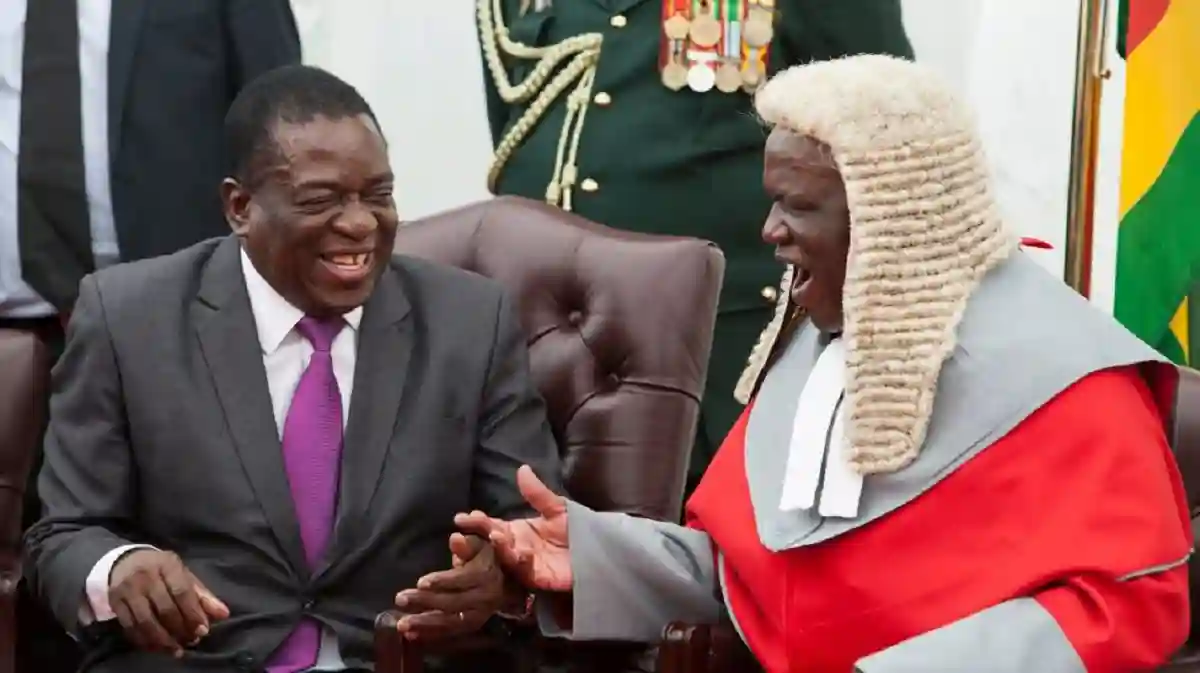Zimbabwean lawyers are demanding that Chief Justice Luke Malaba be brought before a tribunal after it emerged that in 2015 he sat on an appeal case against his own judgment.
In 2015, Malaba, Justices Paddington Garwe and Susan Mavangira, sitting at the Supreme Court, heard an appeal by the trustees of the Leonard Cheshire Homes Zimbabwe Central Trust who sought the eviction of Robert Chiite and seven others.
They ruled in favour of the trustees prompting Chiite and the others to appeal at the Constitutional Court where Malaba was waiting for them there, together with Garwe, Mavangira and six other judges.
Malaba again wrote the judgment upholding his own judgment given at the Supreme Court with all the other judges concurring.
Commenting on the matter, Professor Welshman Ncube, a constitutional law expert, told ZimLive that he had “no idea why the three judges would sit in a case purporting to be an appeal against their own judgement.”
Another law expert, Professor Lovemore Madhuku described the situation as “a uniquely Zimbabwean affair, coming out of that unique constitutional provision.” He said:
The new constitution clearly said the Constitutional Court was to consist of the Chief Justice and the Deputy Chief Justice, and seven other judges who sat together as a bench to hear a matter. Consequently, judges of the Supreme Court held the dual responsibility of presiding over matters in both the Supreme Court and the Constitutional Court.
I know of a case where three judges of the Supreme Court referred a matter to the Constitutional Court and when they sat as a ConCourt, one of those judges said the matter was wrongly referred.
Other lawyers, however, disputed Madhuku’s arguments, pointing out that whereas it was a constitutional requirement that the Chief Justice and the Deputy Chief Justice must always be part of the nine ConCourt judges, the court itself had created a precedent in which it allowed matters to be argued in the absence of the Chief Justice.
This comes when judges are complaining about Malaba’s conduct saying his is bullying them to act in a certain way at the expense of justice.
More: ZimLive

